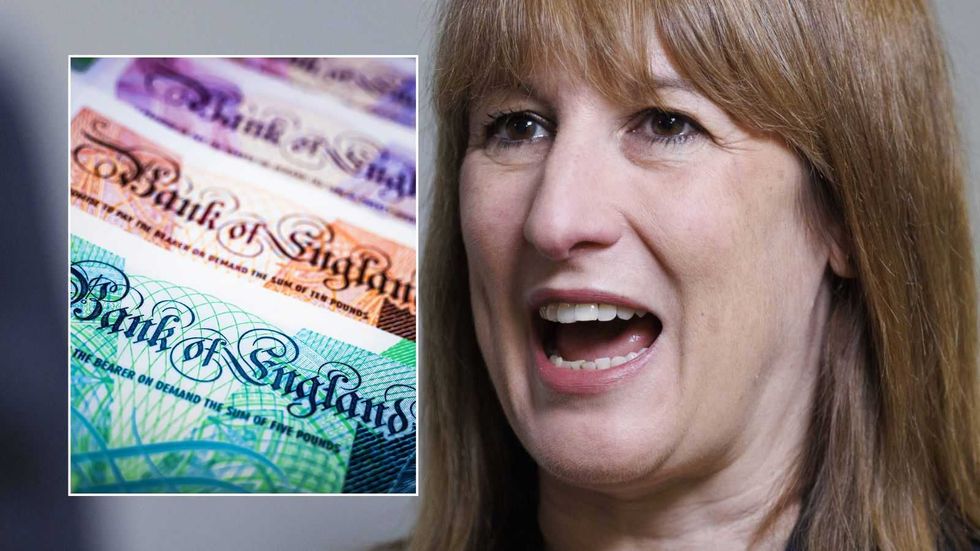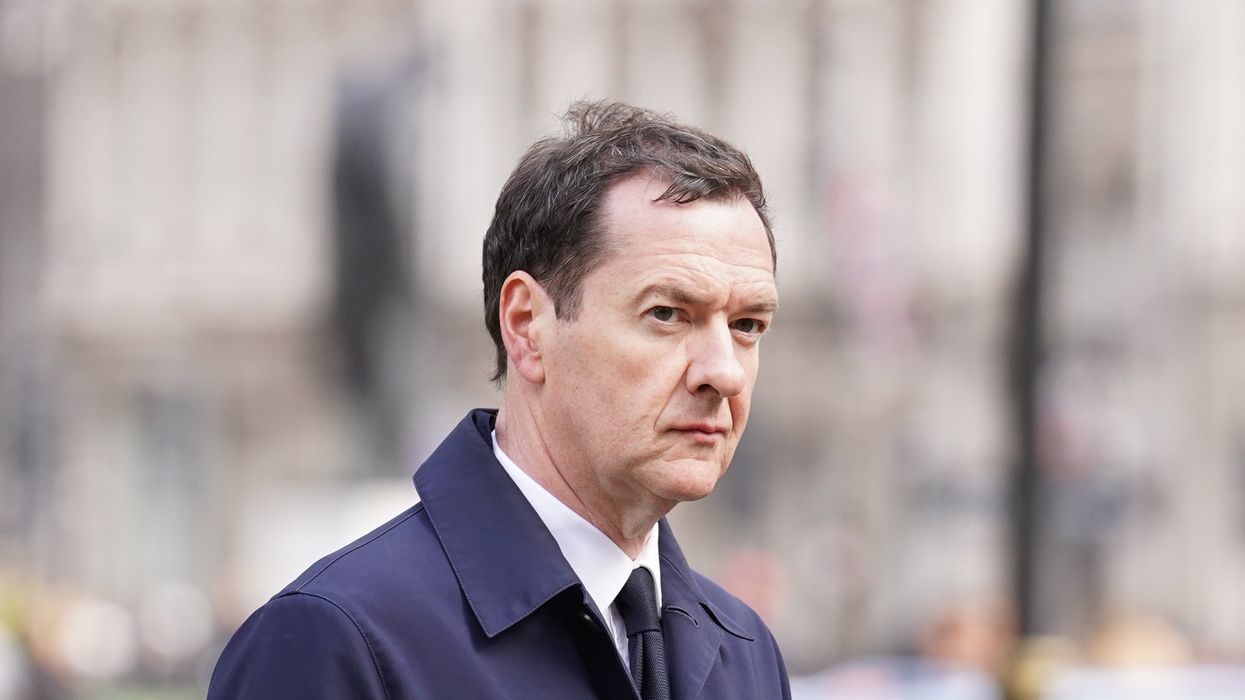Bank of England's £20bn bill costs more than ENTIRE Home Office budget as Rachel Reeves told to take action

'The bond markets are applying what they call the moron premium to the UK economy.' |
GB NEWS

Economists are urging the Chancellor to review how quantitative easing under the Bank of England is costing the taxpayer
Don't Miss
Most Read
Latest
A policy decision from the Bank of England is costing British taxpayers more than the entire annual Home Office budget, according to new research from the New Economic Foundation (NEF).
The think tank's analysis claims the central bank has slapped the UK Government with a nearly £80billion bill since 2022 and is expected to cost around £20billion a year until 2033.
Based on this estimate, the Bank’s £20billion a year cost would make it the tenth most expensive Government department, below the Department for Transport and above the Home Office.
Despite this expense, the price of the Bank of England policy received no scrutiny from Chancellor Rachel Reeves in her Spending Review earlier this year.

The Chancellor is facing calls to tackle Bank of England policy
|GETTY
Why is the Bank of England costing taxpayers £20billion a year?
This "loss" is a result of post-2008 financial crisis policy, which saw former Conservative Chancellor George Osborne encouraging quantitative easing. The Bank of England purchased Government bonds, otherwise known as gilts.
In order to pay for them, the central bank created new reserves, which is essentially new money that sits in commercial banks' accounts with the Bank of England. As a result, bonds went into the Bank's balance sheet while reserves went onto the liability side.
These reserves are held by commercial banks, which are paid the base rate from the Bank of England. This is the rate of borrowing set by the Monetary Policy Committee (MPC) and currently sits at four per cent.
Between 2009 and 2021, interest rates were near zero which meant the Bank of England was earning more from its Government bonds than it paid out. However, in the aftermath of post-Covid inflation, central banks were forced to raise interest rates substantially.
 The Bank of England's QE monetary policy is coming under fire | GETTY
The Bank of England's QE monetary policy is coming under fire | GETTY As a consequence of this, the interest paid on reserves skyrocketed. This has resulted in the Government paying more in interest to commercial banks than it is paying from its gilts; which is a net operating loss.
Since 2012, the Treasury has pledged to cover these losses through "indemnity". While this was profitable when rates were low, this trend has now reversed with taxpayers left with an annual bill of £20billion.
Dominick Caddick, an economist from the NEF, broke down why Ms Reeves should consider scrapping this deal between the Treasury and the Bank of England for good.
He shared: "As easily as it was done then, the UK Government could change the indemnity so these £20billion a year costs are not putting so much pressure on the Chancellor in meeting her fiscal rules.
"In fact, such an approach is adopted in the USA and the eurozone, where the Federal Reserve and European Central Bank absorb their own losses via ‘deferred asset’ and ‘losses carried forward’ accounting. This allows central banks to retain profits until their losses are paid off."
As part of its "Breaking the Bank" report, the NEF has put forward five proposals to save the UK Government money as the Treasury attempts to plug an estimated £30billion "black hole" in the public finances.
These include axing the indemnity with the Bank of England instead absorbing its own losses instead of passing £20billion a year in "losses" to the Treasury and taxpayer.
Furthermore, the think tank has called for greater transparency to educate the British public into how much loss the central bank can handle without exacerbating inflationary pressures.
LATEST DEVELOPMENTS:

Former Chancellor George Osborne introduced indemnity between the Treasury and Bank of England
| PAAs well as this, NEF economists believe the Bank of England should accept loss if they help the Government meet particular goals or mandates, such as Net Zero investment.
If losses are not useful, the think tank claims the Government should stop paying interest on certain bank reserves, which is similar to what the Eurozone and Switzerland have done in the past.
Finally, the NEF has proposed the creation of an Economic Coordination Council to align Bank and Treasury decisions, with both sides explaining if they ignore advice.
GB News has contacted the Treasury for comment.
More From GB News










